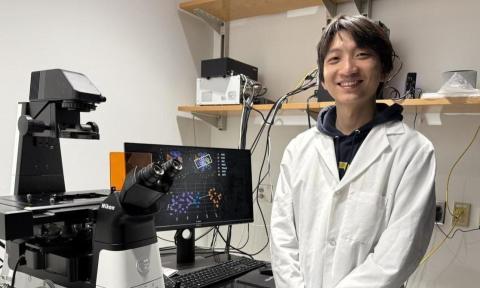Apr 18, 2025

Stem cell therapies are improving recovery and survival rates for pediatric cancer patients. But the treatments can be risky. They can weaken the immune system, making children highly vulnerable to infections. And there are other potential long-term complications, including damage to tissues and organs.
A team of researchers at Georgia Tech has addressed this challenge, creating a new way to predict how these cutting-edge treatments might work in a particular patient. And it could revolutionize treatments for kids with complex immune system challenges.
Currently doctors inject stem cells almost blindly, taking kilograms of cells from bone marrow or umbilical cord blood without knowing exactly which will work best, or how they’ll react to immune responses. The new research provides a more precise way to understand these complex interactions.
“We essentially created a miniature laboratory that can show how stem cells behave inside a patient’s body,” said Ahmet Coskun, Bernie Marcus Early Career Professor in the Wallace H. Coulter Department of Biomedical Engineering at Georgia Tech and Emory University, who led the research team.
“It’s a predictive approach to guide clinicians in choosing the right treatment and understand exactly how these cells interact with a patient’s immune system,” added Coskun, whose team explained its innovative research recently in the journal BME Frontiers.

